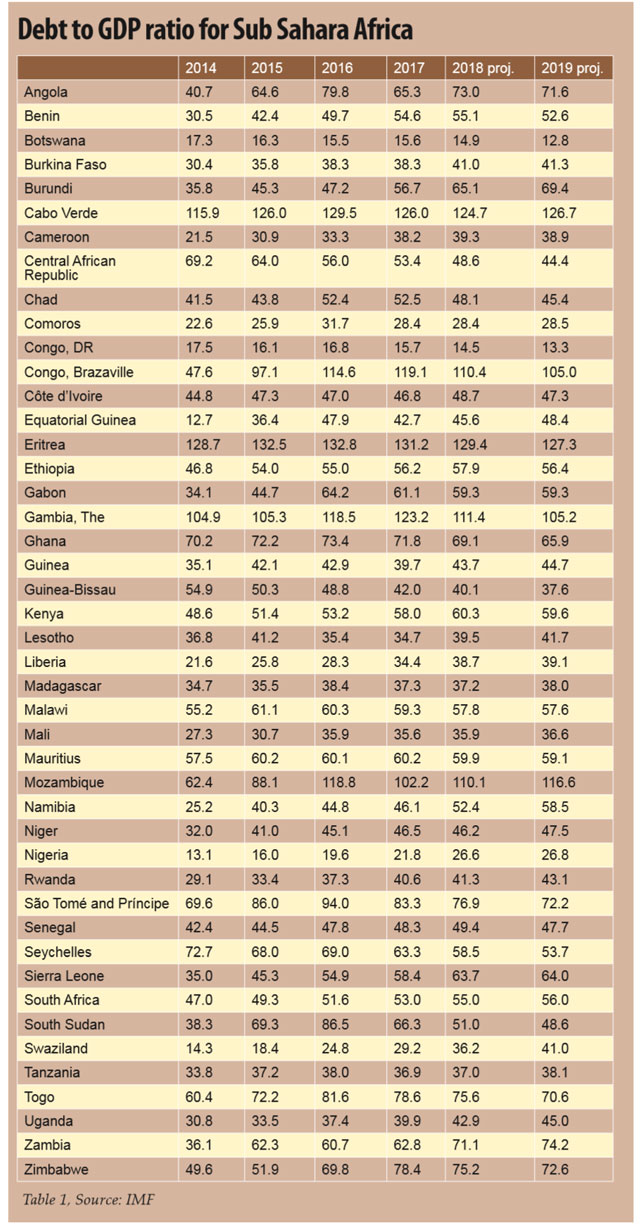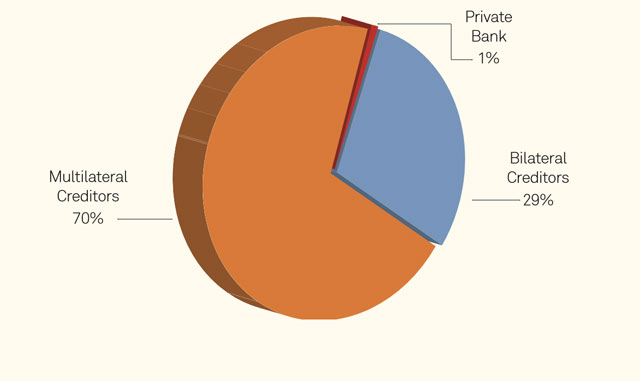PUBLIC DEBT: Why is it growing? Is it prohibitive, unsustainable?
Kampala, Uganda | ANDREW M. MWENDA | On January 10, I watched with increasing depression a debate about Uganda’s national debt on the NBS Frontline show. Although the Minister of State for Finance, David Bahati, made many good arguments in defence of government, his delivery was not effective.
The moderator, Charles Odongotho, appeared uninformed about the subject and failed to generate the right questions or direct the discussion well.
I expected Fred Muhumuza, with a PhD in economics and who once served as an advisor in the Ministry of Finance, to lift the debate to some higher intellectual plane. Instead he plunged into narrowly focused theoretical arguments spiced with the usual Ugandan populist talk that attracts praise on social media but has little substance.
Opposition politicians Salamu Musumba and Nandala Mafabi could not get themselves out of cheap politicking. Instead of raising the many vital criticisms of government borrowing, they kept heckling and speaking a lot of inconsequential things.
Ofwono Opondo was, as usual, logical but uninformed. Norbert Mao looked completely lost.
In my view, any discussion on Uganda’s national debt must first lay down the following facts: It is hard to nail down out actual debt since it is a moving figure. But as of end of March 2018, Uganda’s total public debt stock (excluding undisbursed debts) was $10.5 billion (Shs38.8 trillion). Out of this foreign debt was $7.2 billion (Shs26.5 trillion) or 68.2% of the total while domestic debt was $3.4 billion (Shs 12.4 trillion) or 31.5%. The debt to GDP ratio was 39.9% below the recommended ceiling of 50%. I will explain the implications of these figures later in this article.
Be that as it may, such a debate needed to be premised on the fact that Uganda is not an island on Mars cut off from what is happening in the region (East Africa), continent (Sub Sahara Africa) and the globe. Therefore, any serious discussion of our growing debt must provide not just the historical context of Uganda but also the broader regional and global context.
For example, the Standard Gauge Railway, which will add $2 billion to our debt, is a regional project. Second, across Africa, all nations are borrowing heavily to invest in transport and energy infrastructure.
I have attached a table here giving the debt to GDP ratio of all the 44 nations of Sub-Sahara Africa. Only 13 of them have a debt to GDP ratio lower than Uganda’s.

Why is debt growing?
Placing Uganda in the regional and global context helps illuminate the broader factors driving borrowing. It helps us avoid the pathology of claiming that borrowing is a Museveni/Uganda problem – if it is a problem at all. So why is growing debt common across the entire Sub Sahara Africa region? This was never addressed.
It is understandable though not excusable, for politicians such as Mao, Musumba and Mafabi to score political points by making arguments stripped of context, but not for Muhumuza, a scholar.
There are four critical questions on public borrowing, which I felt the moderator would try to focus the panellists on. One is the purpose of debt: is it financing consumption or investment? Second is the cost of this debt. Is it prohibitive? Third, given Uganda’s current and projected domestic revenue and foreign exchange earnings, is the debt sustainable? Fourth, and related to the third point: do the investments financed by debt have a good return?
All Uganda’s foreign debt is nominally going to develop infrastructure – roads, railways, dams, transmission lines, airports etc. Some money is lost to corruption but it is a very small fraction. The rest goes to the right things: transport and energy infrastructure has potential to give the economy future productivity gains. Uganda’s economy grew rapidly at an annual average rate of 6.92% between 1986 and 2013. That made Uganda the 17th fastest growing economy in the world, 6th in Africa. If we remove oil and gas producing countries from the sample (because they were enjoying God’s or nature’s bounty), Uganda was 9th fastest growing economy in the world; in Africa it was second to Ethiopia.
 The Independent Uganda: You get the Truth we Pay the Price
The Independent Uganda: You get the Truth we Pay the Price




